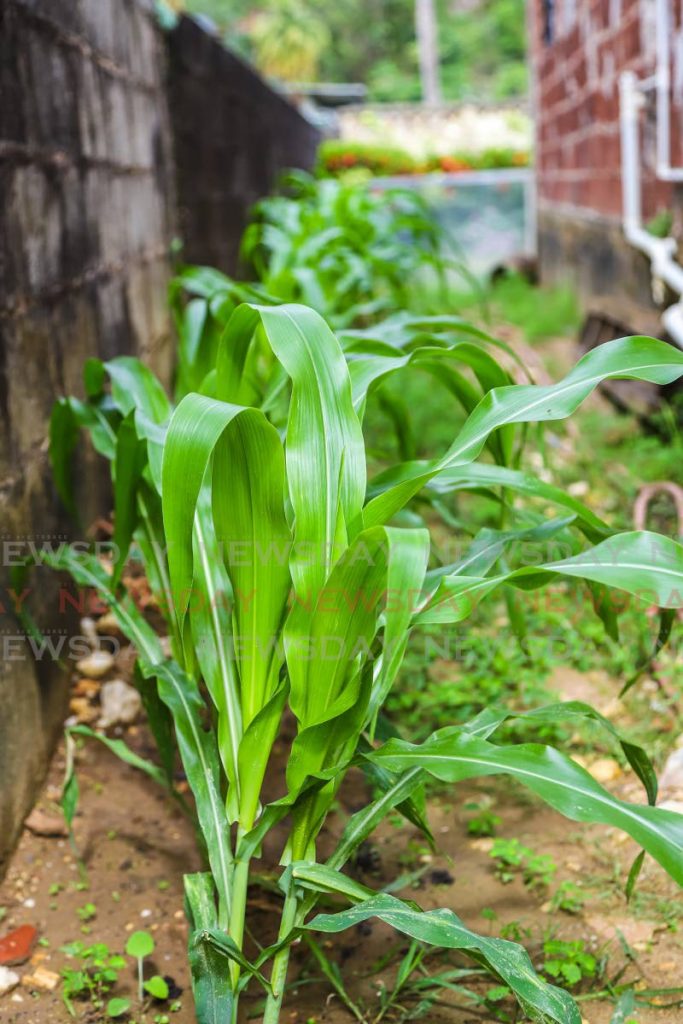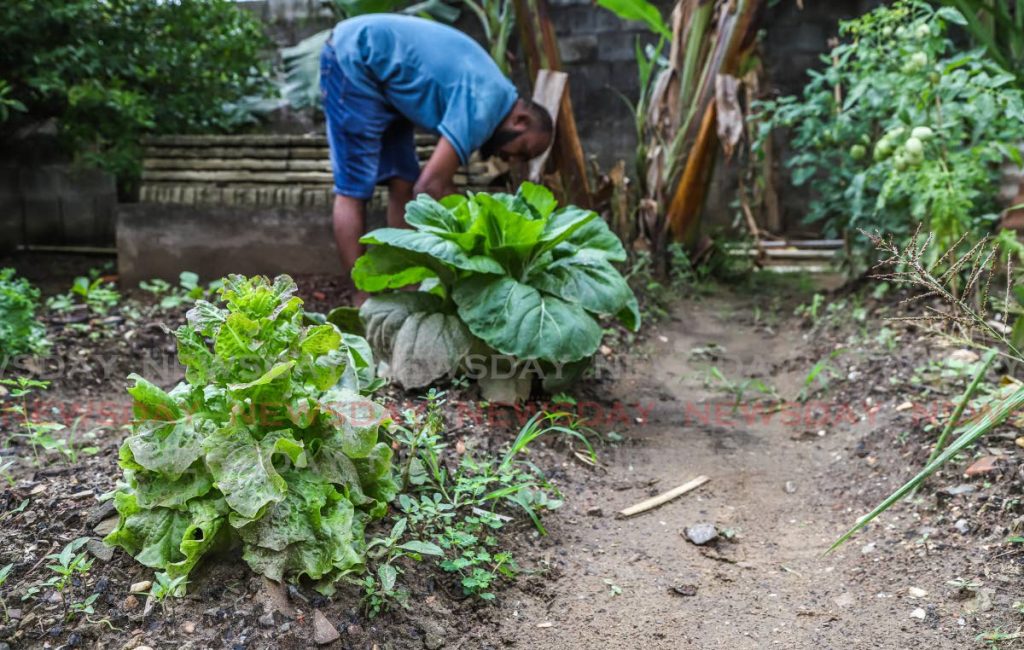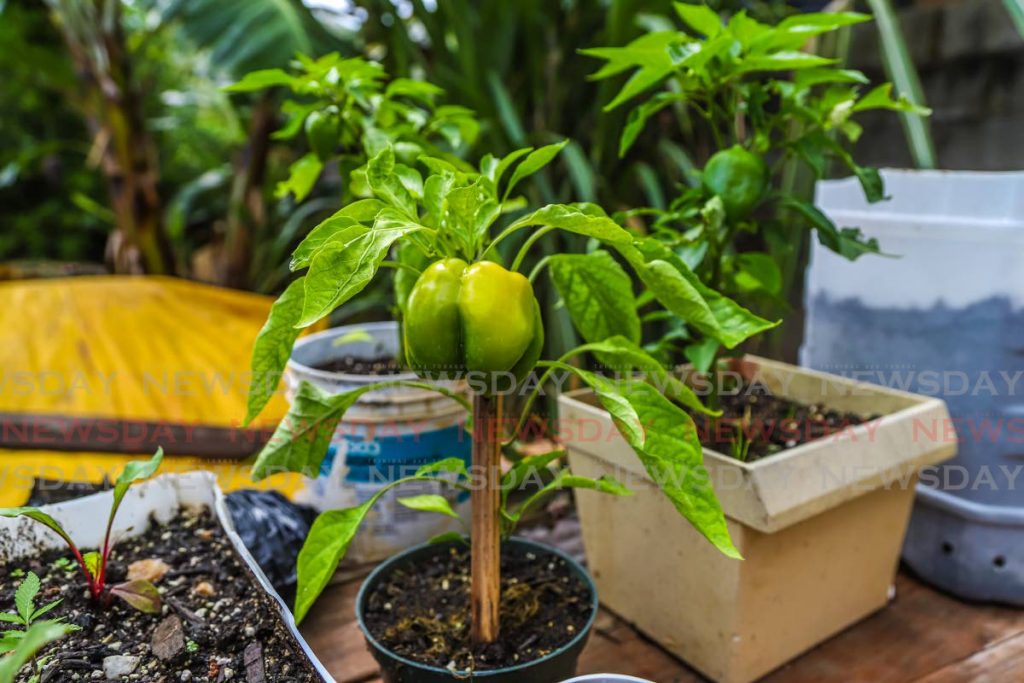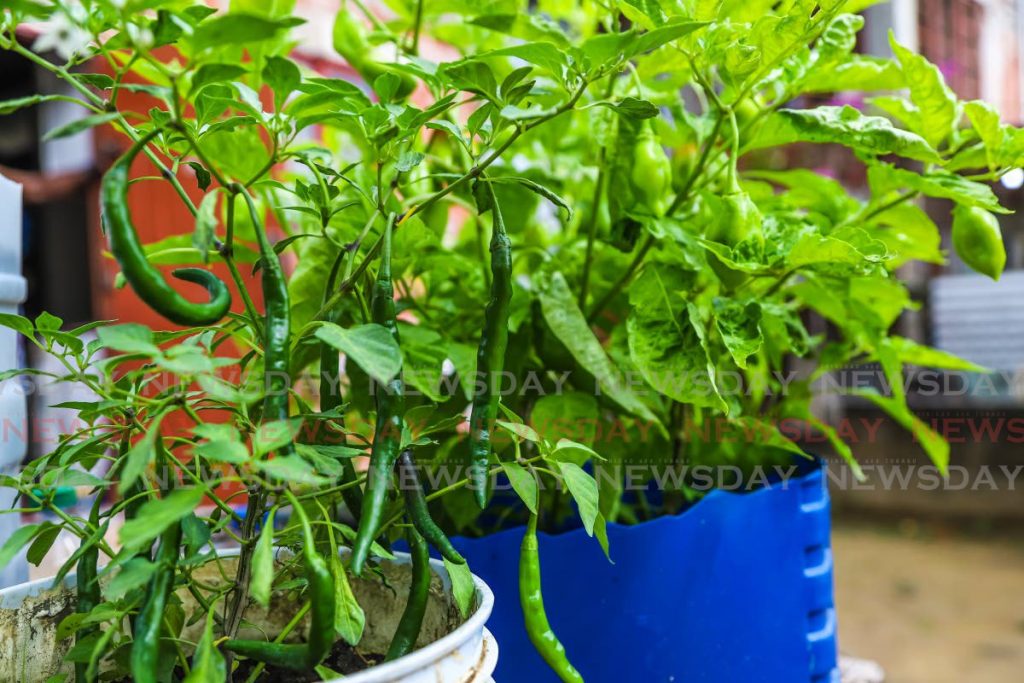Grow your food

Since the outbreak of covid19 the issue of food security has been on the minds of many. TT imports a significant amount of food – the Ministry of Agriculture notes the food import bill in 2019 was $5.3 billion – and now that international supply and demand chains are disrupted because of the pandemic, food security is foremost on the minds of many.
It might not be much, but some people think they may have found a solution, and it is right in their backyards.
As people continue to practise social distancing, those who can are turning their backyards into small gardens, giving them access to safe, healthy food. Even the Prime Minister and Opposition Leader have showed off on social media their well-tended kitchen gardens.
And, with Corpus Christi considered the best day for planting, now would be the best time to start a garden.
Business Day spoke to some people who converted a portion of their yards into kitchen gardens of varying scales. The consensus among them is this: home gardening is easy, it gives people access to nutritious, healthy foods without the risk of being exposed to harmful chemicals and it would significantly reduce each home’s food bill.

Rodney St Hilaire, a maintenance officer who lives on Jean Avenue, Diego Martin, does not consider himself a farmer. In fact, he only began planting produce during the three-month stay-at-home period, imposed on the country to mitigate the spread of covid19.
“I first started thinking about planting after I burst my marijuana plant,” he said. “My neighbour saw it and told me I had a ‘good hand.’ After that I started planting pepper, patchoi, cabbage and tomatoes.”
He is helped by his father, whom he affectionately calls “Rambo.” He said he got some of his seedlings from plant shops, but he also set clippings from vegetables he bought at the grocery.
Since he started, St Hilaire has made at least two harvests of cabbage, kale, patchoi, sweet peppers, pimentos and tomatoes. They also have sugar cane, dasheen, seasonings and even birdseed. All with a yard space of less than 30 square feet.
“You see, you don’t really need a lot of land to plant food to live on. All you need is a little time and effort to put into it,” Rambo said.
St Hilaire’s neighbour, David Copeland, has been farming all his life. The two share tips and sometimes seeds and produce.
Copeland, 59, said his father, who was a gardener himself, taught him everything he knew. And, although he works as a construction worker and has much less space in his yard than his neighbour, he is able to grow tomatoes, cherry tomatoes, cucumbers, bodi, ochro and yellow bell peppers, along with tomatoes and other vegetables.
“The key is love and proper maintenance. You have to love what you do, and love your plants so you can take care of them.”
“You need water, fertiliser and treatments for pests, sun and proper soil.”
He said proper soil could be sourced many places. He took wood shavings and fine sand from a nearby river to mix with the soil in his yard and manure to improve his soil quality. For compost, he uses food waste, like potato skins and even egg shells.
“Depending on the plant it would need calcium, and eggshells are a good source.” Copeland said.
He said he saved a lot of money personally through his small garden.
“When you have a backyard garden, vegetables you may not be able to buy you could have in your yard. It cuts down a lot on costs at the grocery,” he said. “Plus you know what you are putting in your plants. When you buy vegetables you aren’t too sure what people are putting in it. I have bodi and tomatoes. Sometimes tomatoes go for about $20 a pound. It really puts a few hundred dollars in your pocket.”

Obika Alexander, a 32-year-old landscaper and construction worker, has been tending to his hundred-foot parcel of land for close to five years. On that land he has full crops of seasoning, patchoi, cauliflower, pimentos, sweet peppers, tomatoes, celery, lettuce and even fruit trees. In a small cage at the side of his house in Sea Trace, Diego Martin, he is also rearing rabbits.
Alexander said he got started after seeing his cousin’s vegetable garden, which was quite small in comparison to what he has now.
“He would have for himself and would still have to make a little dollar on the side. So I would watch him and I decided to give it a try.”
“The yard by me was only bush, so I decided to start there. I thought with the garden I would be able to keep it clean.”
Alexander said one of the first things he planted was a coconut tree, which still stands above the vegetable garden today.

In one of his first crops he planted 40 pepper plants. Now he has about 200. He also has harvested hundreds of patchoi which he would use, and sell during the course of the month. He also would sell seasoning bags for $50 in the neighbourhood, and crops to small groceries in the area. Thanks to the crops in his home garden, he was able to take care of himself and his family while his actual occupations were put on pause because of restrictions due to covid19.
Peter Moll, director of San Antonio Farms, told Business Day several people have come to him over the past few months to get seedlings for several small and short crops.
“Usually there is a surge of people around Corpus Christi, but over the past few weeks we have sold a tremendous amount of seedlings.”
He said because of covid19, more people found the time to plant in their homes, and said although the stay-at-home period was difficult, something good came out of it as more people have begun planting. Also, with the belief that Corpus Christi is one of the better times to plant, several people flock to plant shops to buy seedlings.
“People would at least want to plant a fruit tree for the season,” he said.
Much like the home gardeners, Moll said planting a home garden is easy and would only require a little knowledge about plants, and access to natural pesticides, like clove oil, garlic water, and biological repellents to protect them from pests.
Moll said having a backyard garden does more than supplement your food bill, it also relieves stress.

“Being able to feed yourself is a necessity,” he said. “It is a natural part of life. And it gives you a sense of satisfaction.”
St Hilaire expressed a similar sentiment.
“It is a good feeling sometimes to be able to come out in your yard after work, and look after your plants. You could pull the grass from it, water it and watch it grow. But the best part is the harvest.”

Comments
"Grow your food"